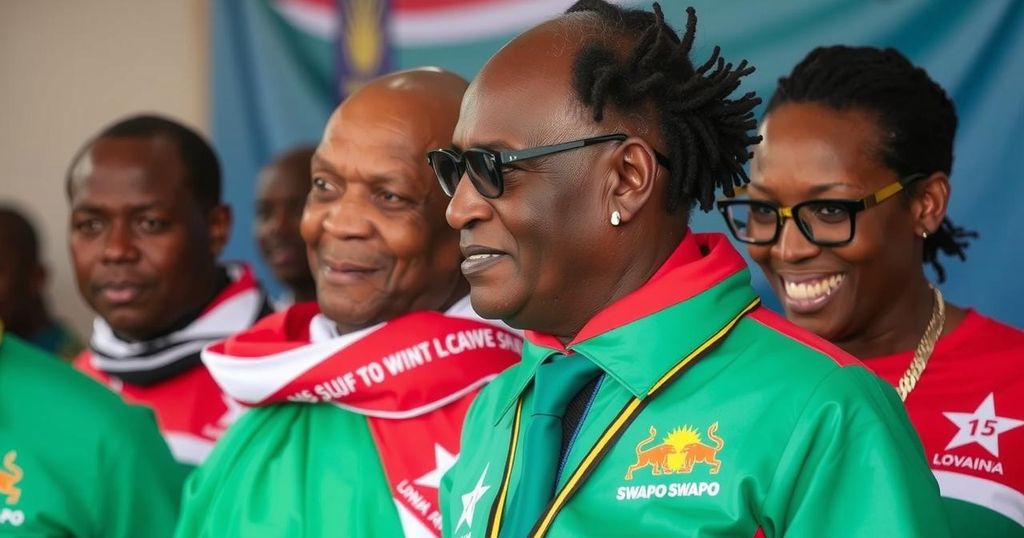Namibia’s Swapo party has retained power but with diminished control, reflecting a wider trend in sub-Saharan Africa where ruling parties are suffering electoral setbacks. Despite winning the presidency, Swapo’s parliamentary performance worsened. Factors like economic challenges and rising public dissatisfaction with corruption have fueled opposition successes in several countries, indicating a shift towards more vibrant multiparty politics in the region.
Namibia’s ruling party, Swapo, has maintained its position in power for over three decades, yet it has faced significant challenges in the latest elections. Official results reveal that Netumbo Nandi-Ndaitwah, the Swapo candidate, secured the presidency with 57% of the vote, marking her as the first female leader in the country. However, opposition parties have contested the results citing logistical issues and irregularities during the elections. Notably, despite the presidential victory, Swapo experienced its poorest performance in parliamentary elections, losing 12 of its 63 seats while clinging to its parliamentary majority.
This electoral setback reflects a broader trend across sub-Saharan Africa in which incumbent parties are increasingly struggling to maintain their hold on power during elections held under democratic conditions. The year 2024 has been particularly challenging for numerous governments across the region as they faced growing discontent due to economic challenges, rising corruption, and the emergence of vibrant opposition coalitions.
Noteworthy is the surprising outcomes in Botswana, Mauritius, and Senegal, where long-standing ruling parties suffered substantial defeats, revealing a significant shift in political dynamics. In Botswana, the Botswana Democratic Party (BDP), in power since independence in 1966, faced a massive loss, holding only four seats compared to the previous 38. Similarly, in Mauritius, the ruling Alliance Lepep coalition was reduced to merely two seats, while the opposition Alliance du Changement claimed an overwhelming 60 out of 66 available seats. In Senegal, presidential candidate Bassirou Diomaye Faye, recently released from imprisonment, attained victory amidst a tumultuous political climate.
The landscape of governance in sub-Saharan Africa has been historically characterized by enduring autocracies and ruling parties clinging to power. However, recent electoral patterns signify a crucial turning point, with numerous governments experiencing considerable electoral setbacks in 2024. Factors contributing to this transformation include economic hardship, escalating public frustration towards corruption, and the formation of effective opposition coalitions. This environment has fostered a more competitive political atmosphere and a demand for accountability from leaders. Additionally, social movements and civil society have played pivotal roles in mobilizing citizens against governmental incompetence, strengthening democratic actions contrary to the backdrop of global democratic regression. As nations anticipate upcoming elections, these trends suggest a more resilient and politically aware populace, emphasizing the importance of democratic institutions and civil engagement in the region.
In conclusion, the electoral developments in Namibia and across sub-Saharan Africa illustrate a critical juncture in the political landscape, marked by a decline in the grip of ruling parties and an increase in opposition efficacy. The political climate is primed for significant change, driven by public disillusionment with economic and governance failures. As observed, the collective outcry from citizens demanding accountability and transparency in governance shines a light on Africa’s potential for democratic resilience amidst rising authoritarianism elsewhere.
Original Source: www.bbc.co.uk






